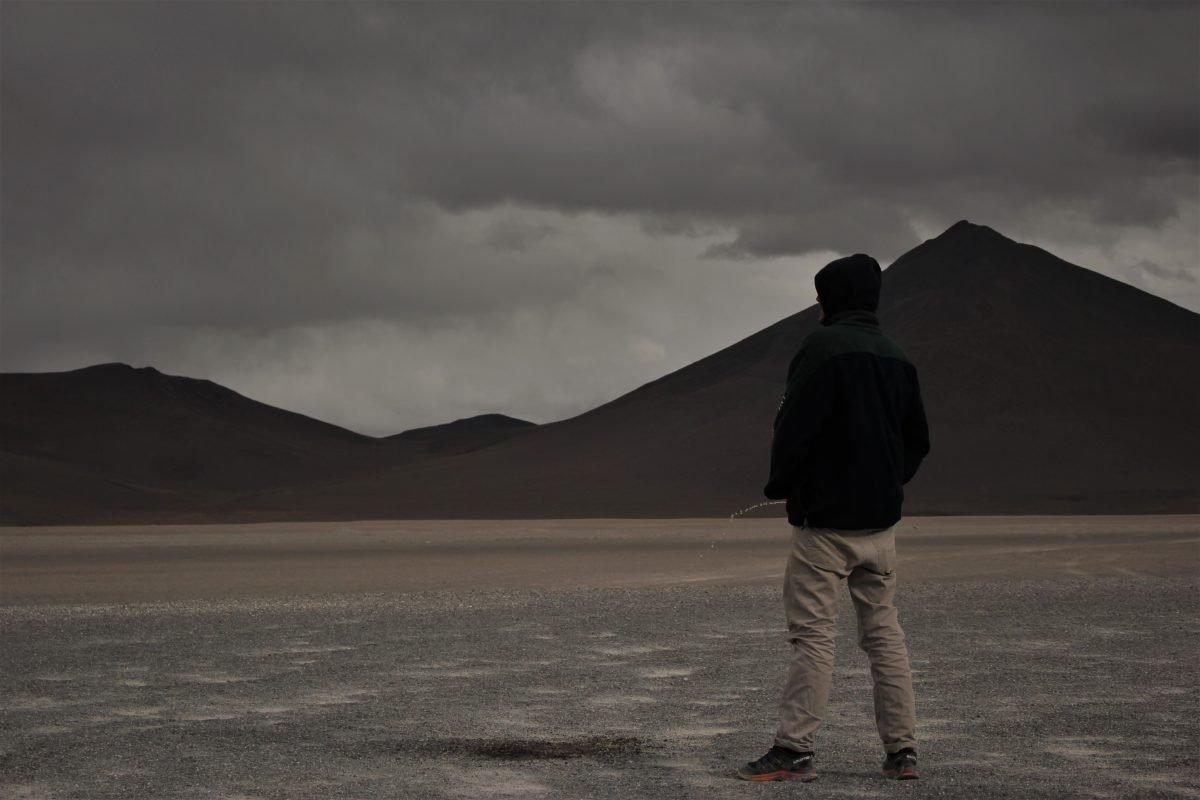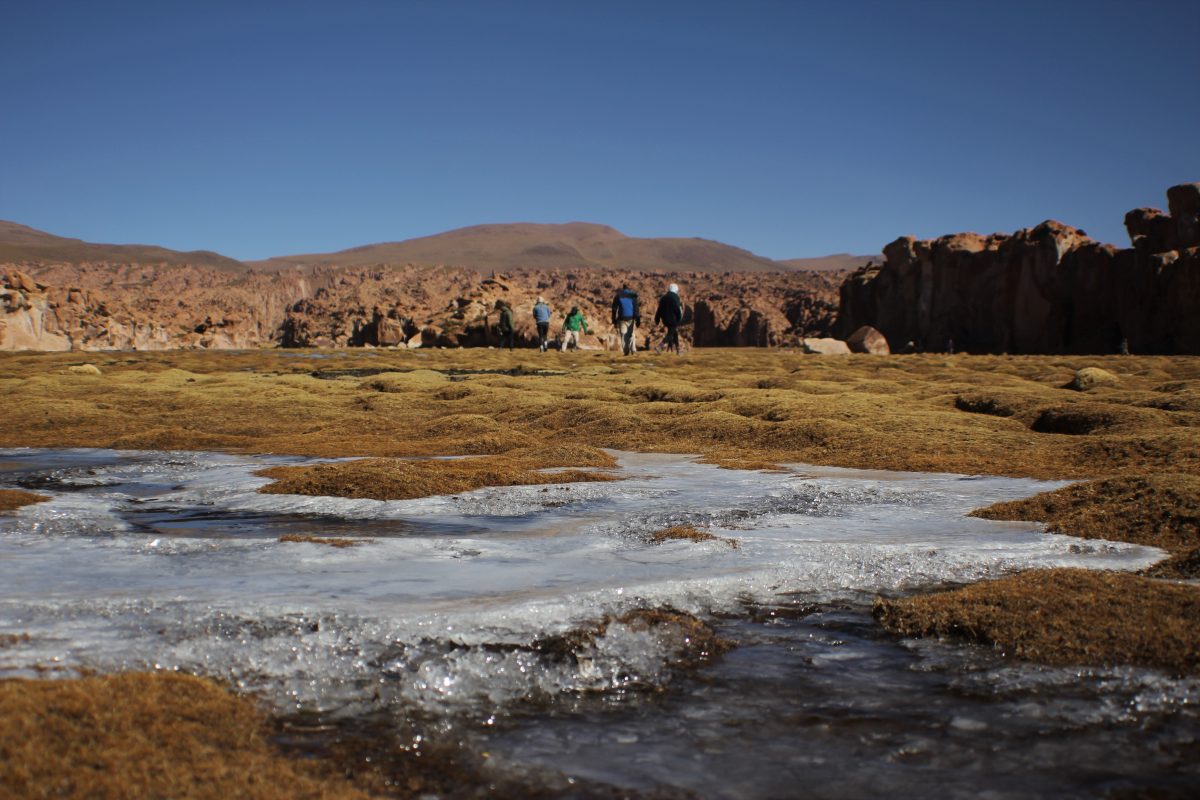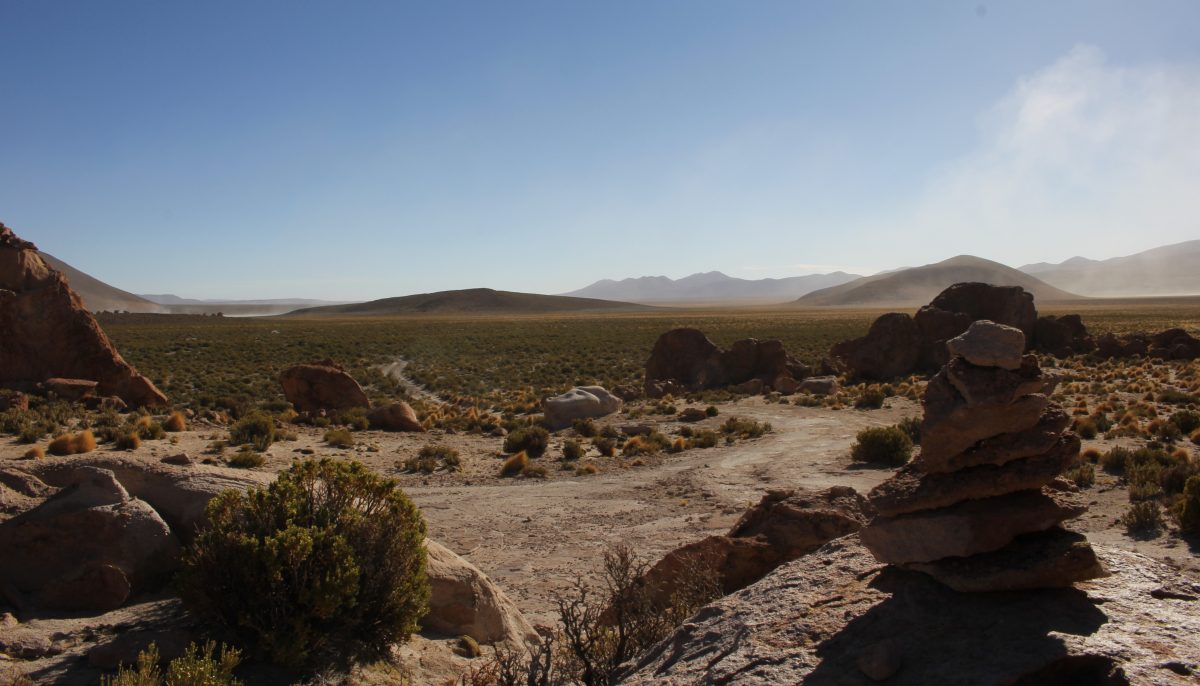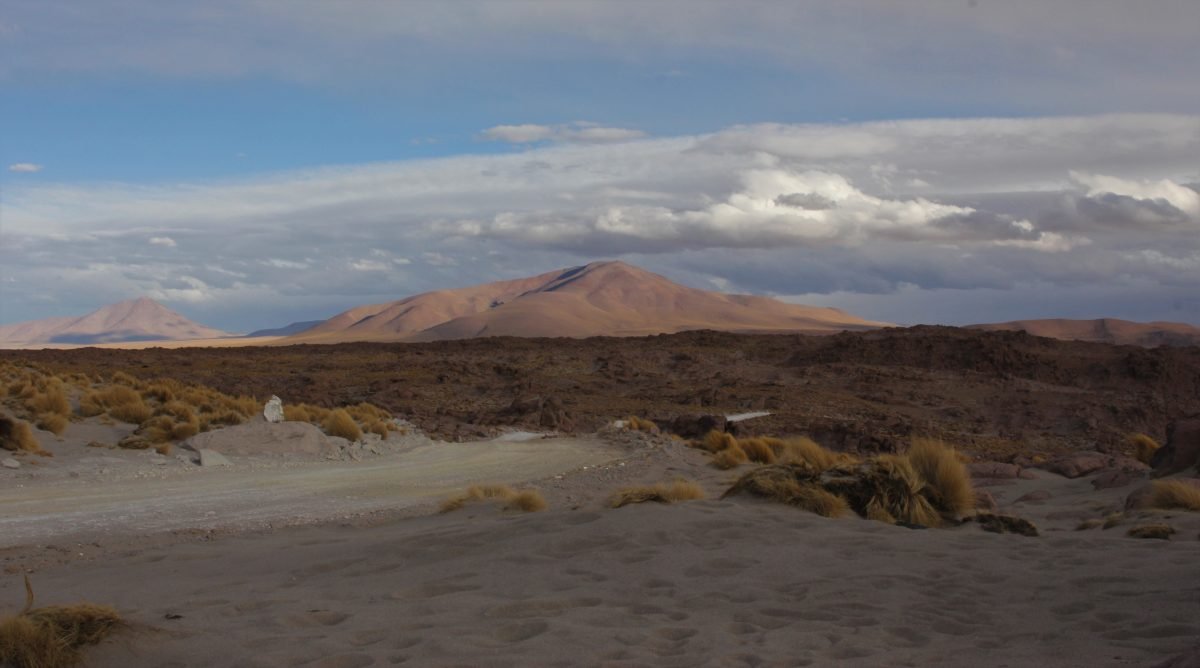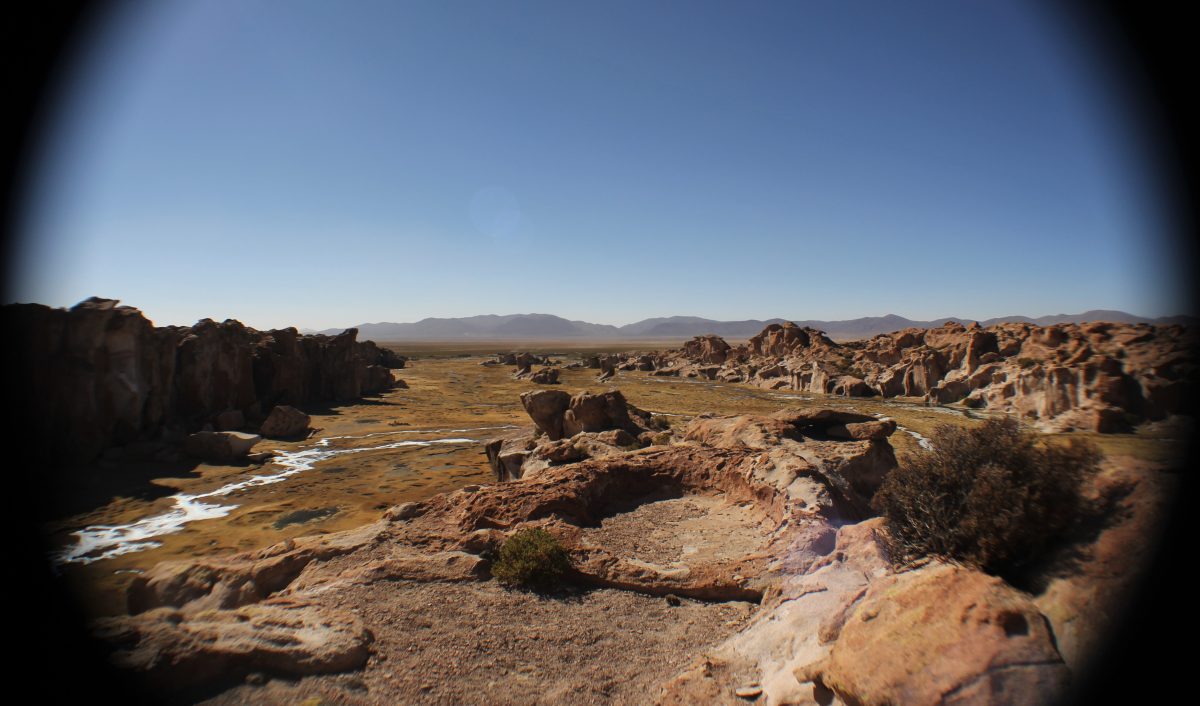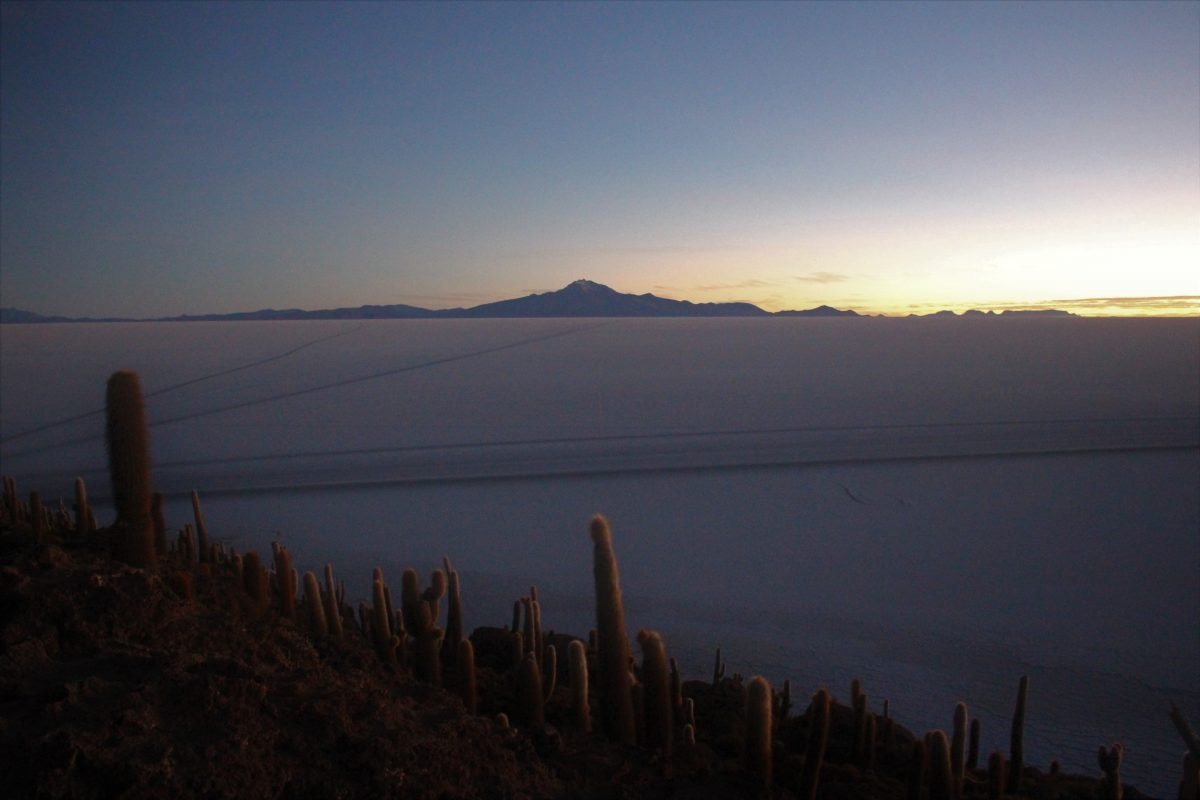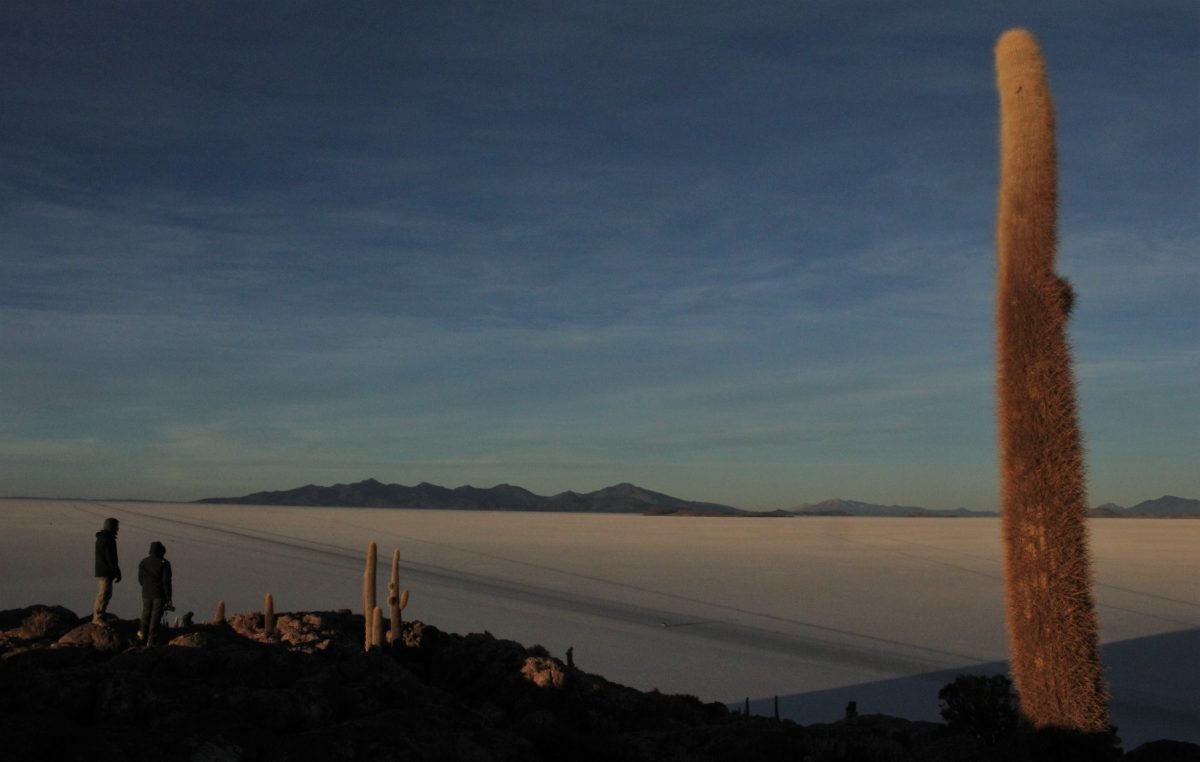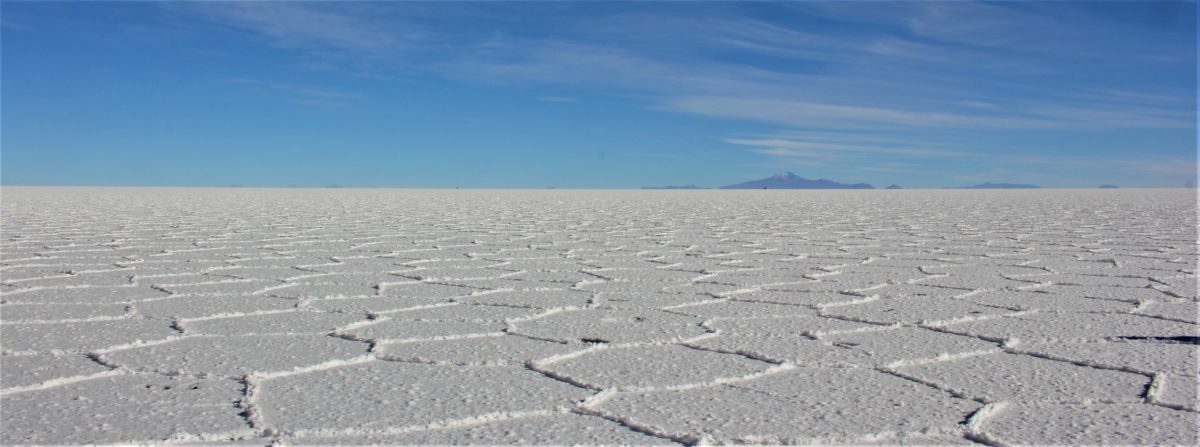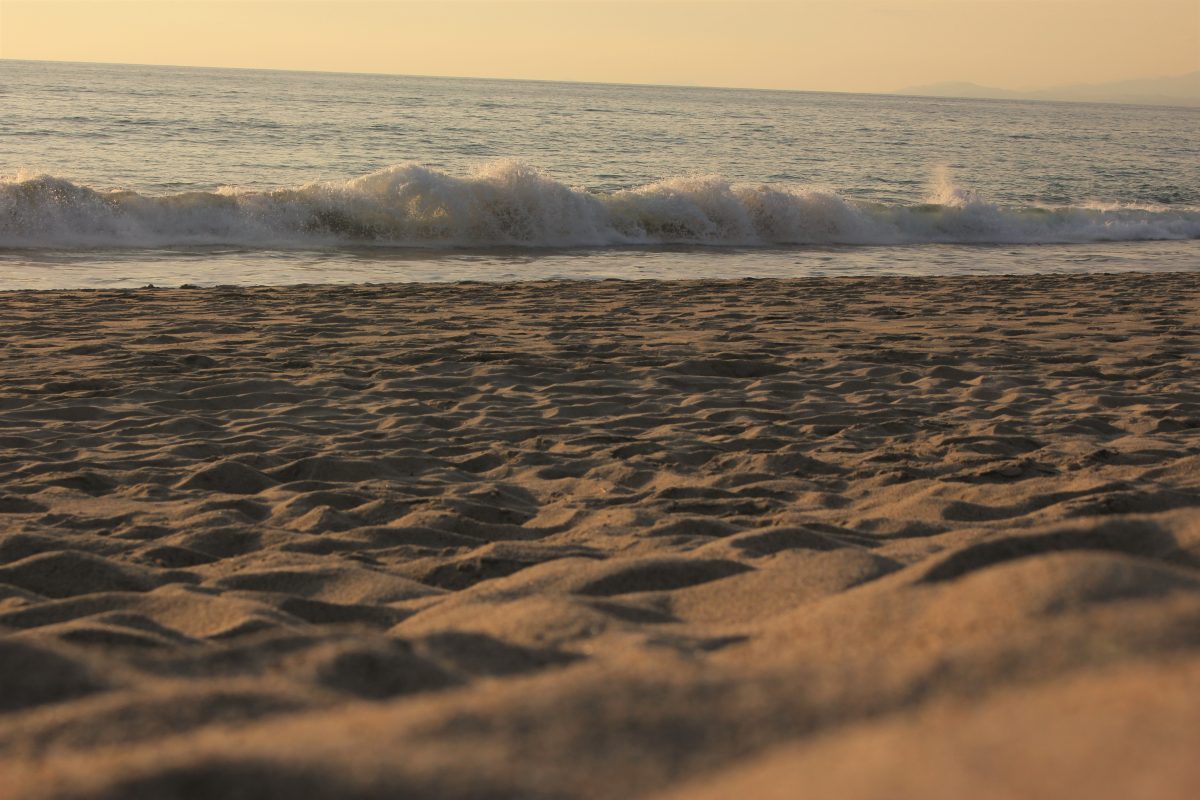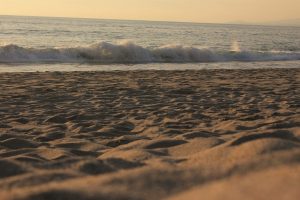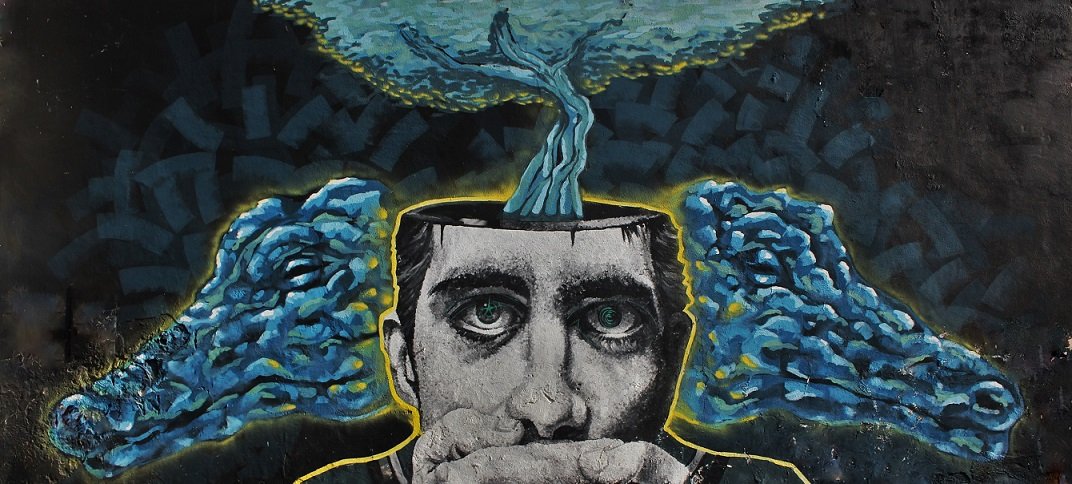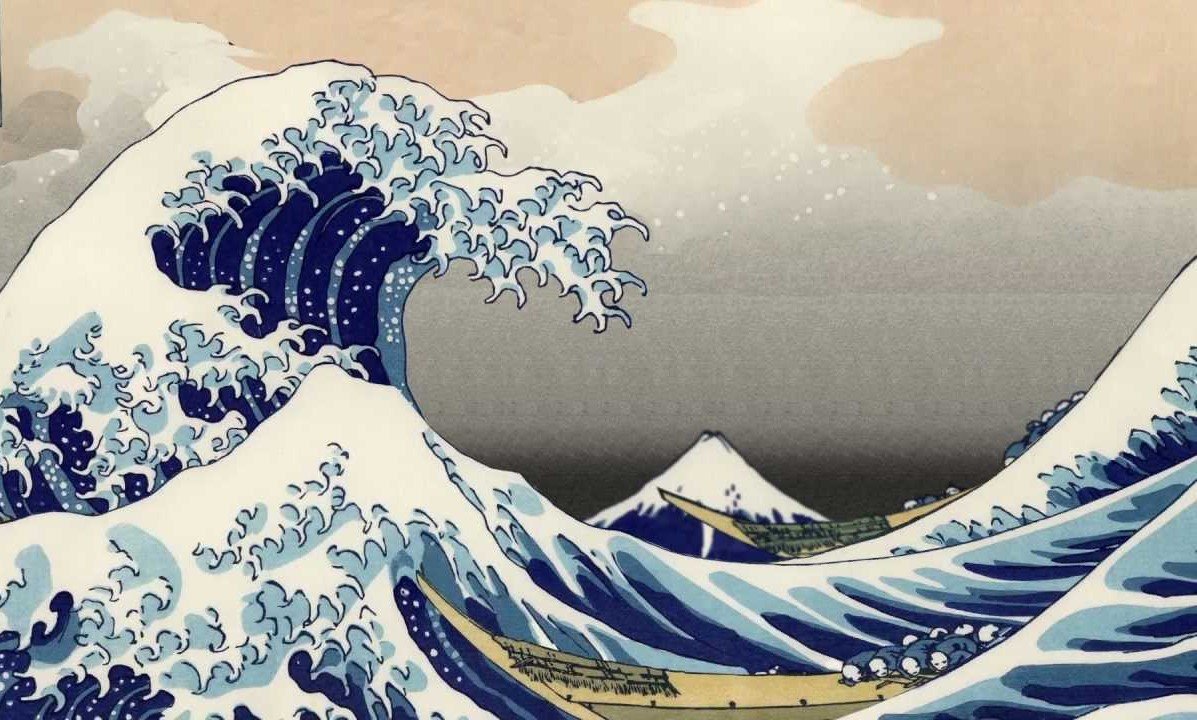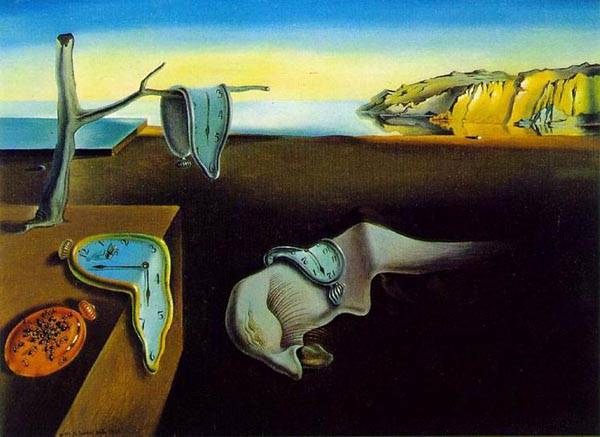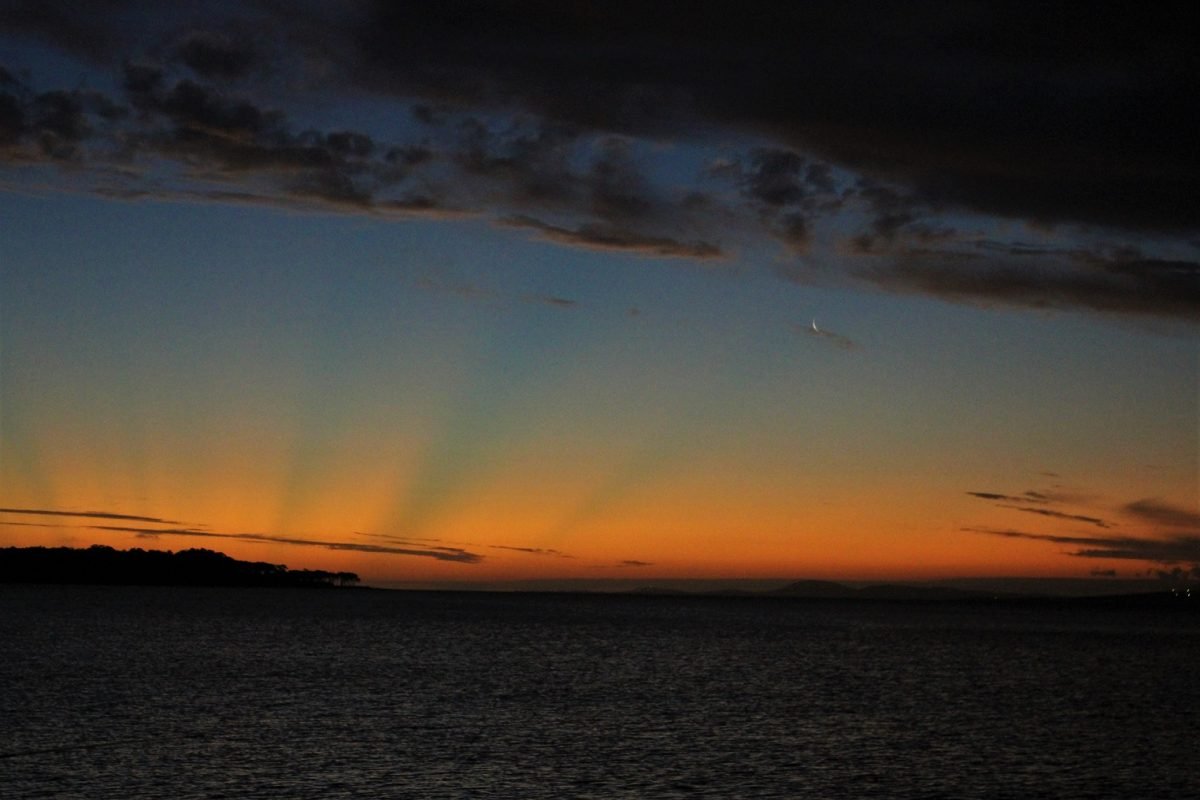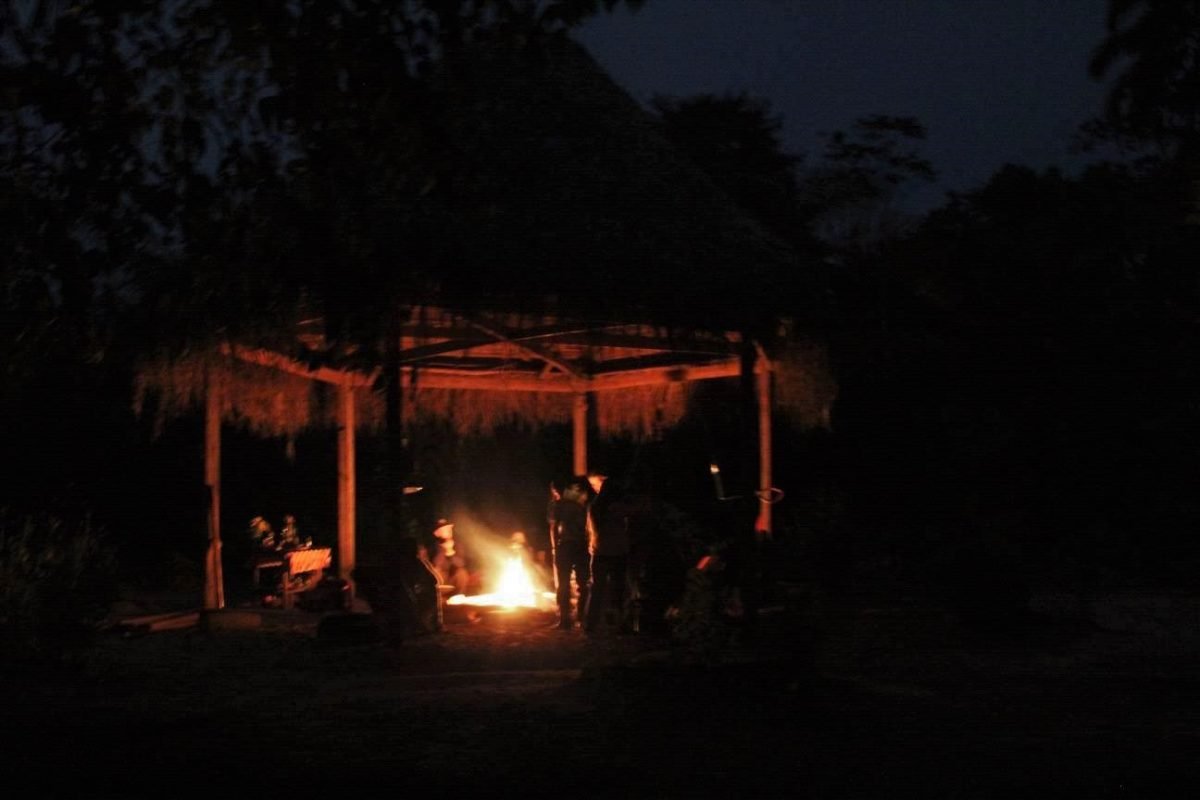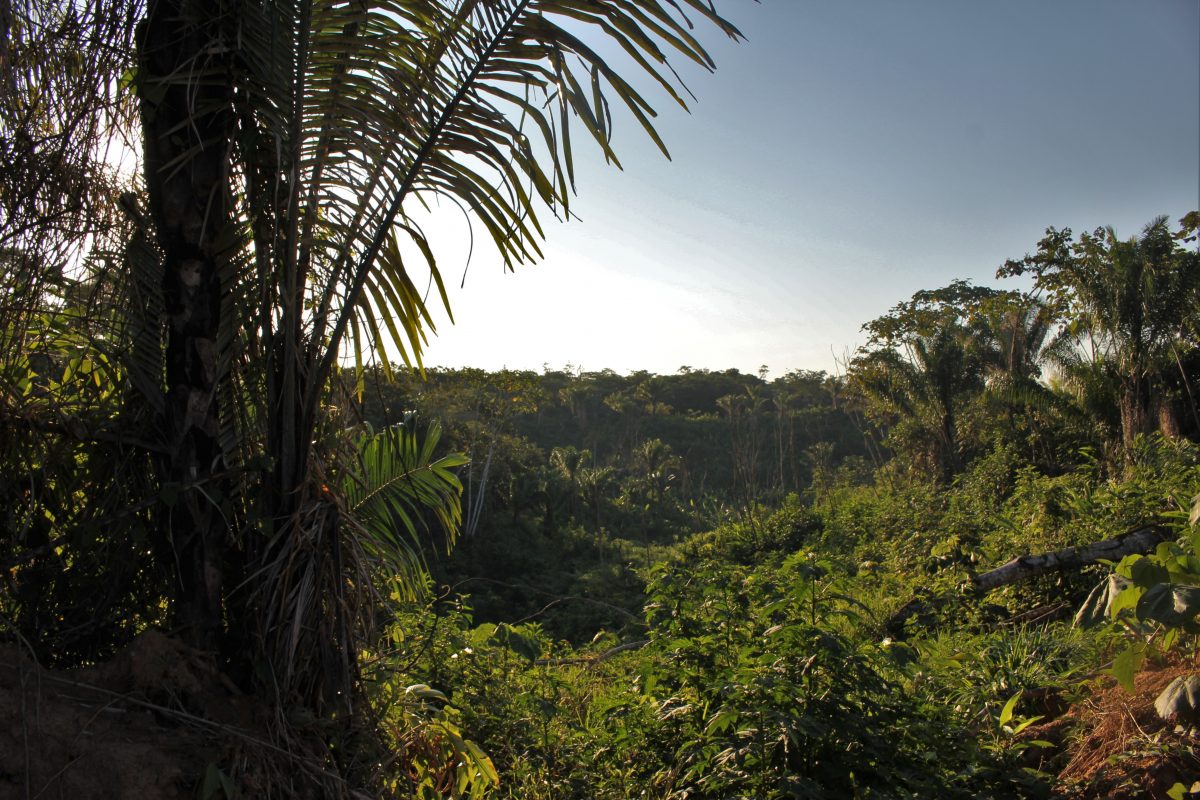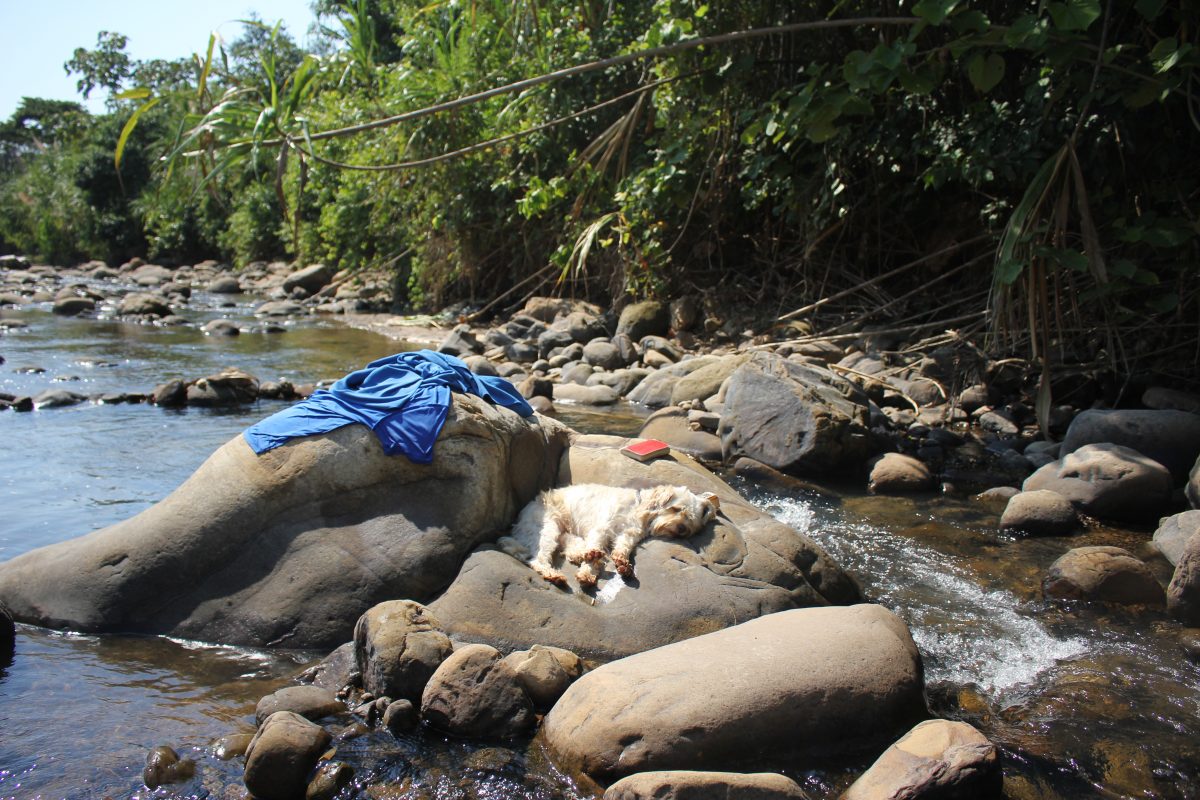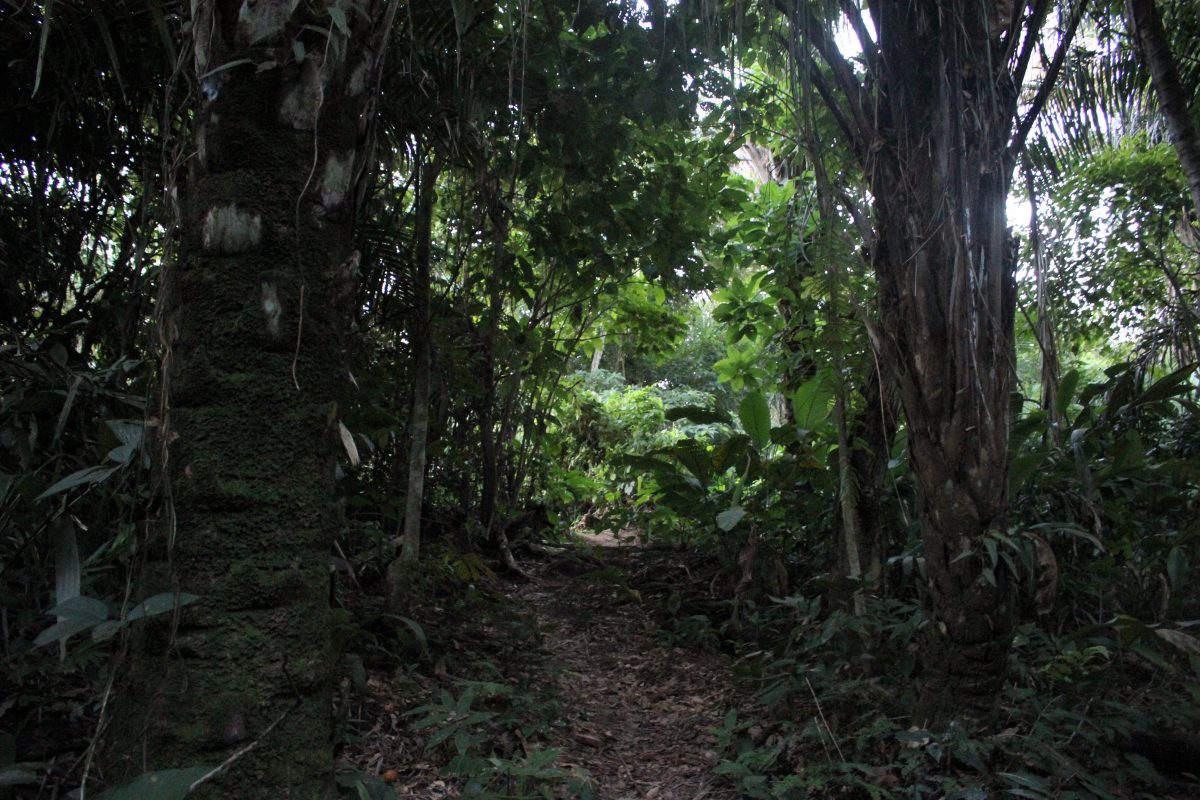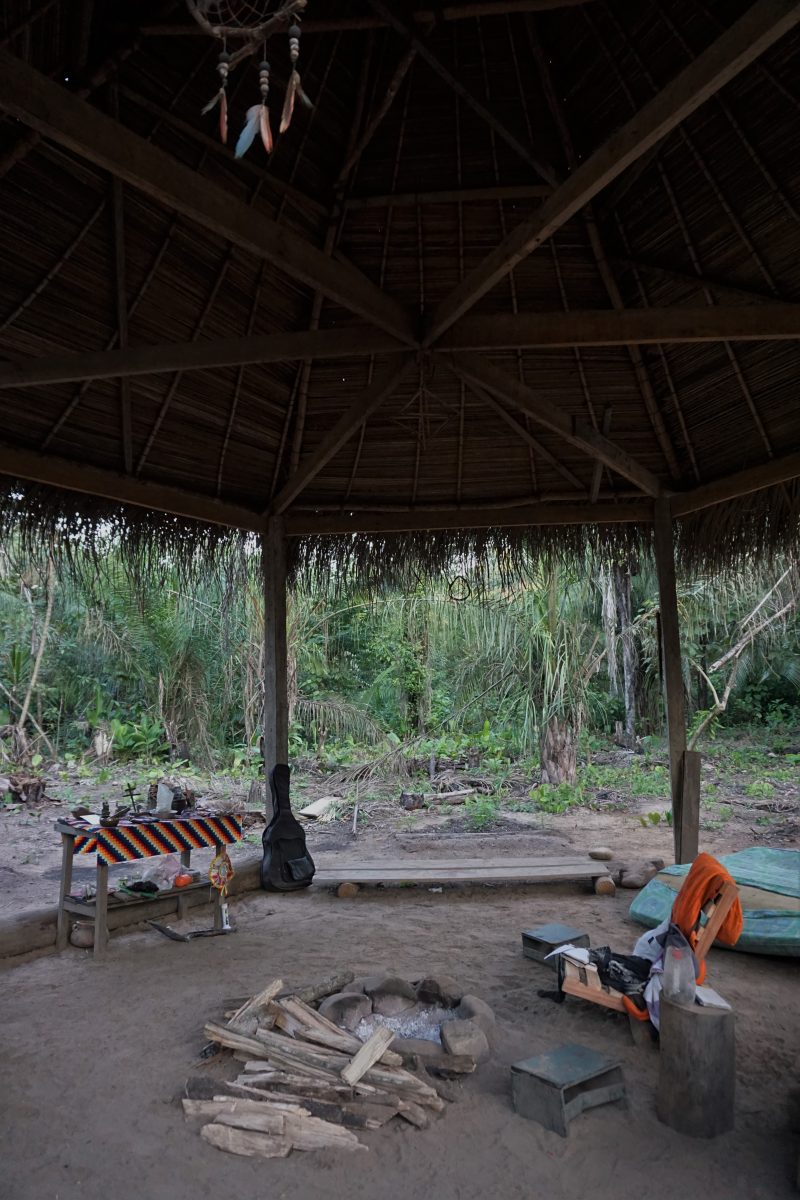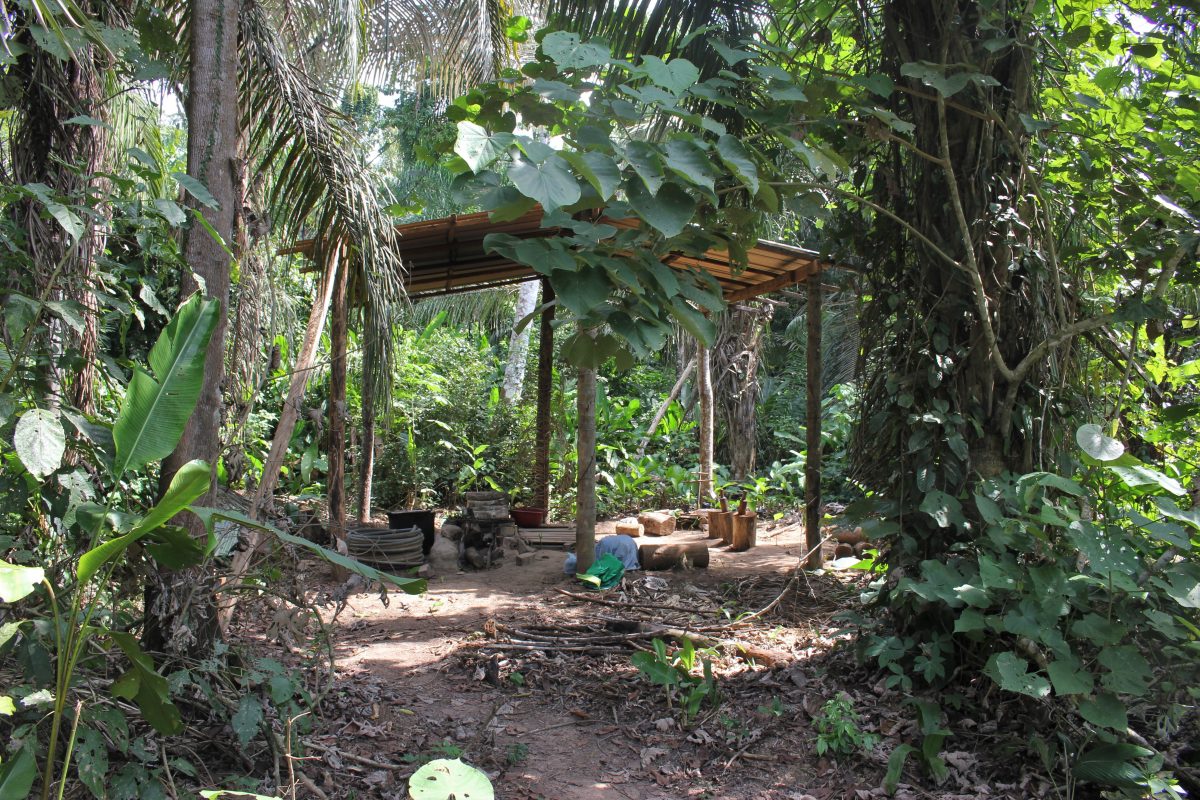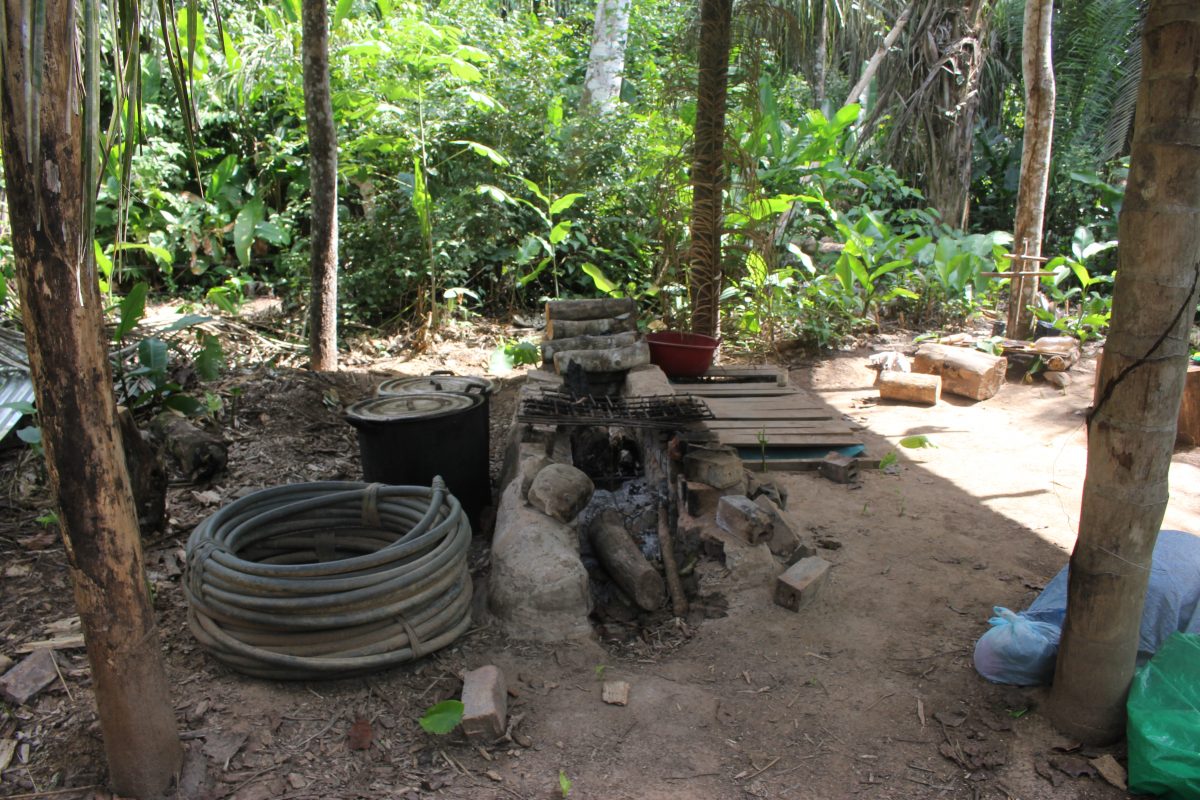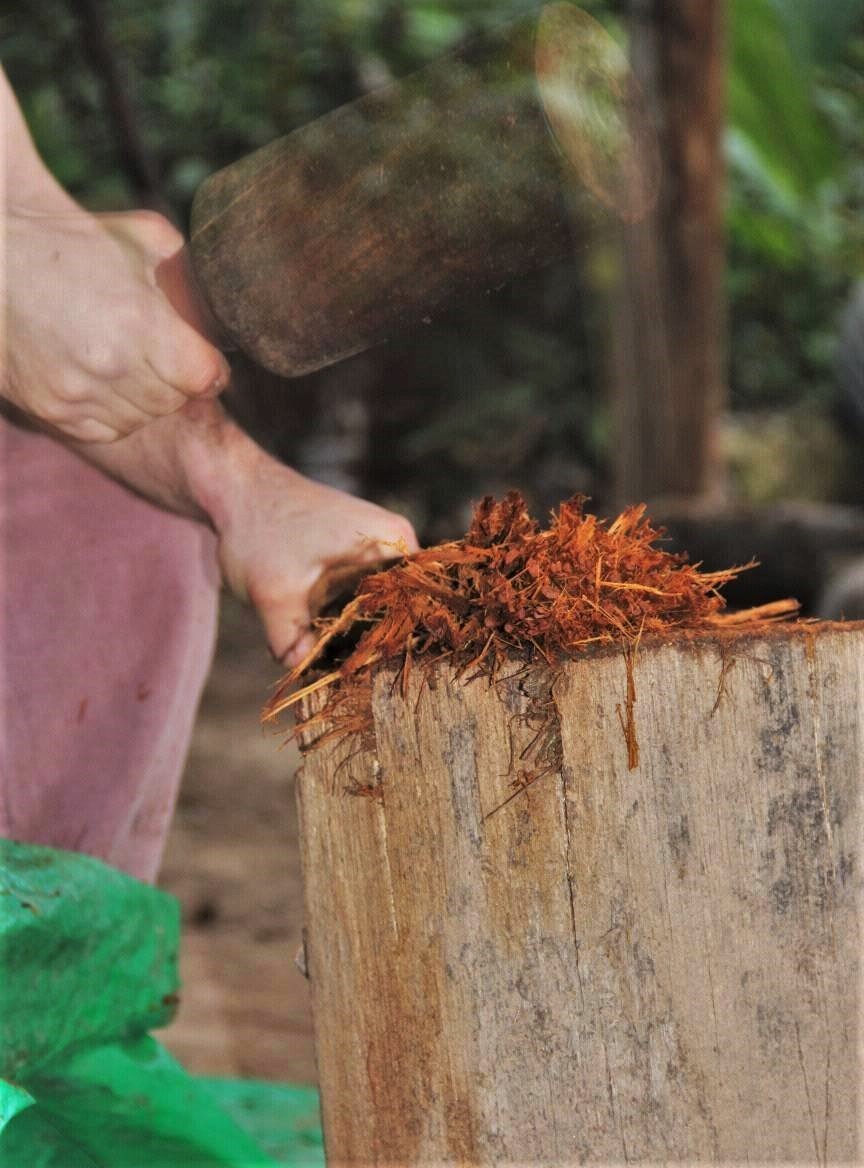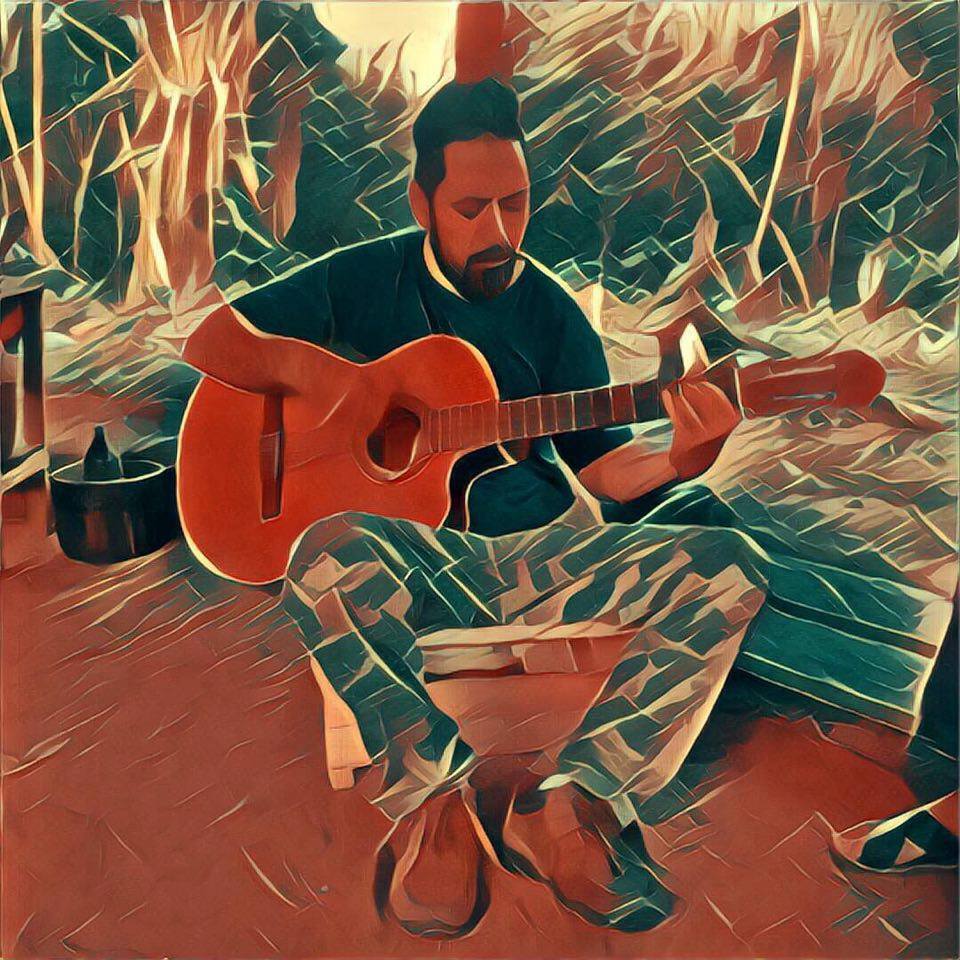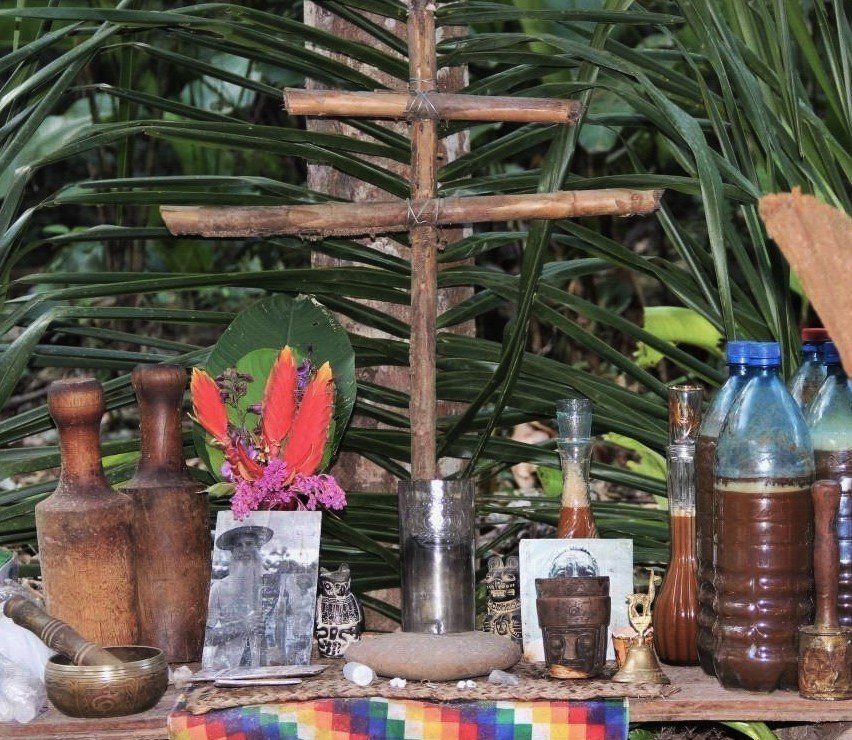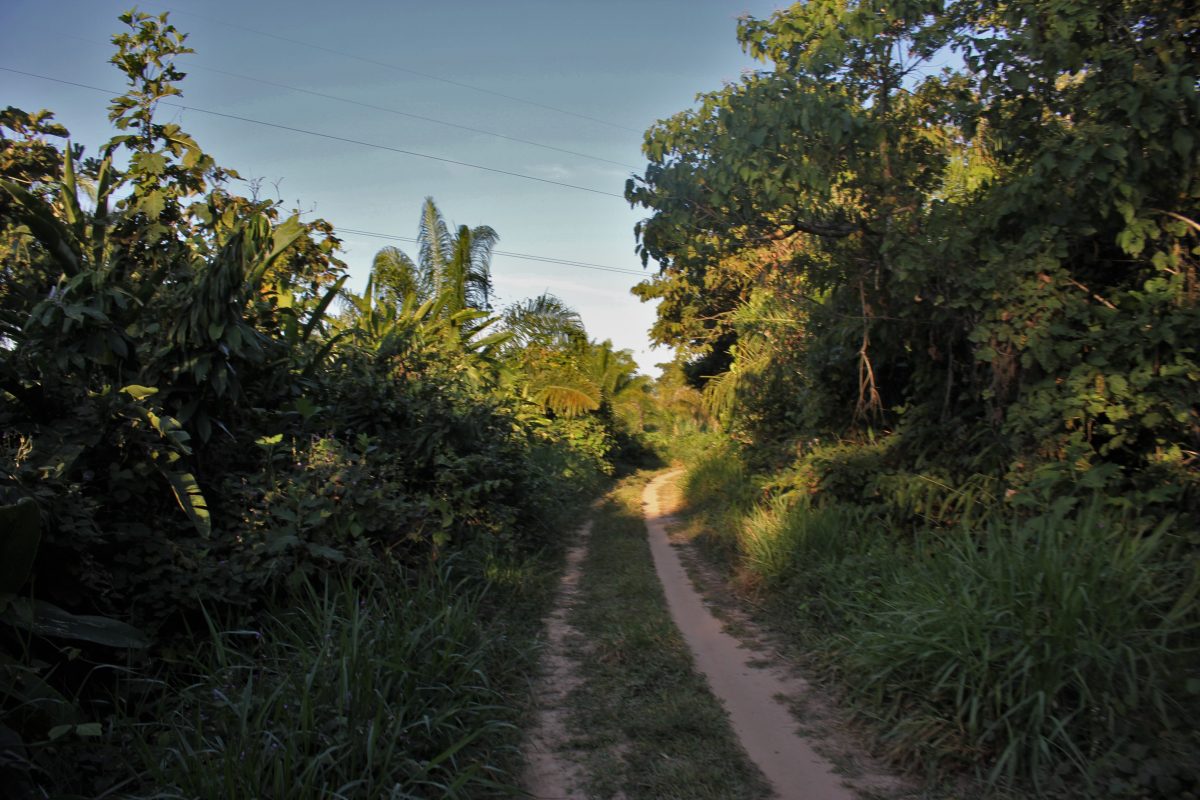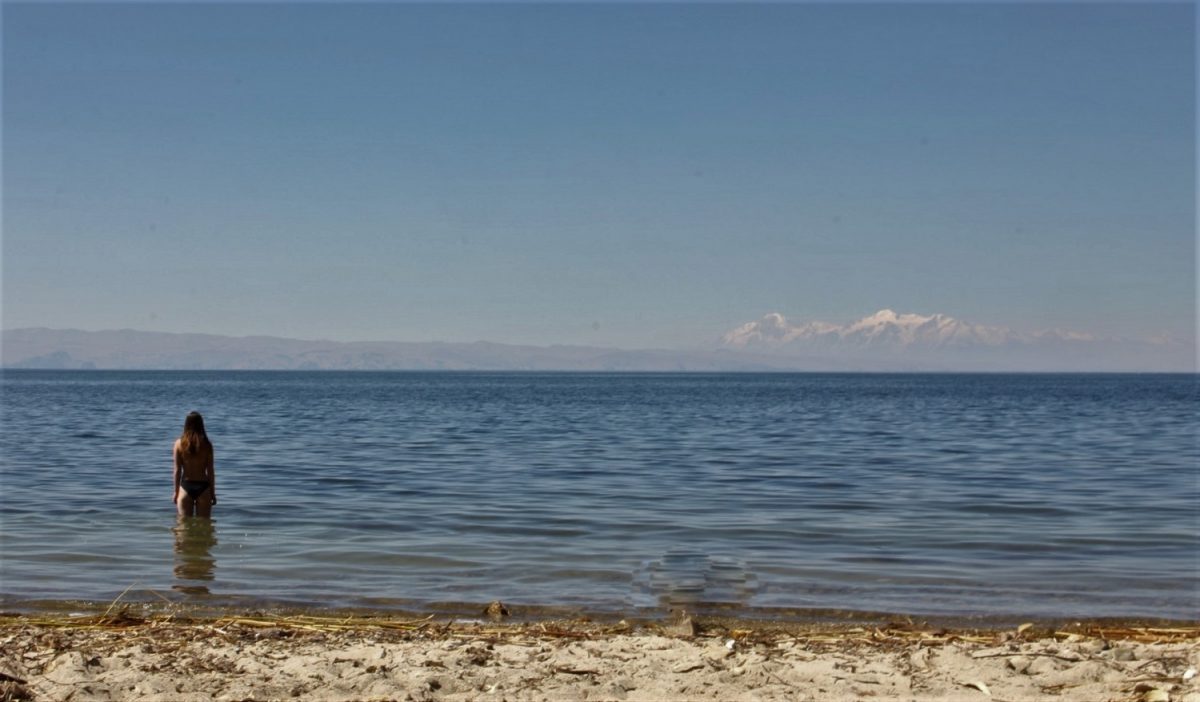
Sophie standing in Lake Titicaca, on her first LSD trip
An acid trip on the Bolivian Isla Del Sol? Yeah that was a pretty sweet one. It was also my new friend Sophie’s first time with LSD. Figuring that you yourself may never have tried psychedelics but may be interested in LSD, this post will centre on how the experience was for Sophie; a first-time tripper. She kindly wrote about the experience from her perspective for me upon request, and I’ve included her writing in sections precluded with and S: and in blue, and interspersed them with my own account of the experience. Also, indented, I’ve put a few comments on aspects of the psychedelic experience typical to LSD.
- N.B. This is by no means an exhaustive or complete account of an LSD experience, or even our experience that day, rather a fun piece that I hope will pique your curiosity and perhaps make you consider LSD and other psychedelic substances differently. There’s also some resources for first timers at the end.
Background
S: Apart from our adventure in the Bolivian jungle, I’d had no experience with psychedelics. As soon as John told me all about the effects of acid and his experiences, I knew I would like to sense this myself too.
As we headed east leaving the Amazon and our ayahuasca chapter behind, I revealed to Sophie that I had a few tabs of LSD and we could take some together. Having both just been told that our next destination, The Island Of The Sun, alleged birthplace of the Incas, is ‘the most beautiful place in Bolivia’, it didn’t take long before we’d decided that it would be a more than opportune time and place for some consciousness experimentation. I’d long wanted to help guide someone through their first LSD experience and figured if I was to ever fulfil my vague and lazily pursued pipe-dream of one day becoming a shaman/psychedelic therapist myself, it would be exactly the type of experience I should be notching up.
Though I’m still no expert, I’d like to think of myself as a fairly seasoned tripper these days and reasonably capable of dealing with any difficult situations which may arise. Besides, and much more importantly, Sophie felt good about it and was very positive.
The Day Of The Trip

The bay we arrived in to
Lake Titicaca is mahoossive so it was only after a 2 hour boat ride that we arrived to the eastern side of the island. After finding a room at a place that was essentially sheds built onto the side of a mountain, we headed in the direction of where we’d heard quiet beaches could be found.
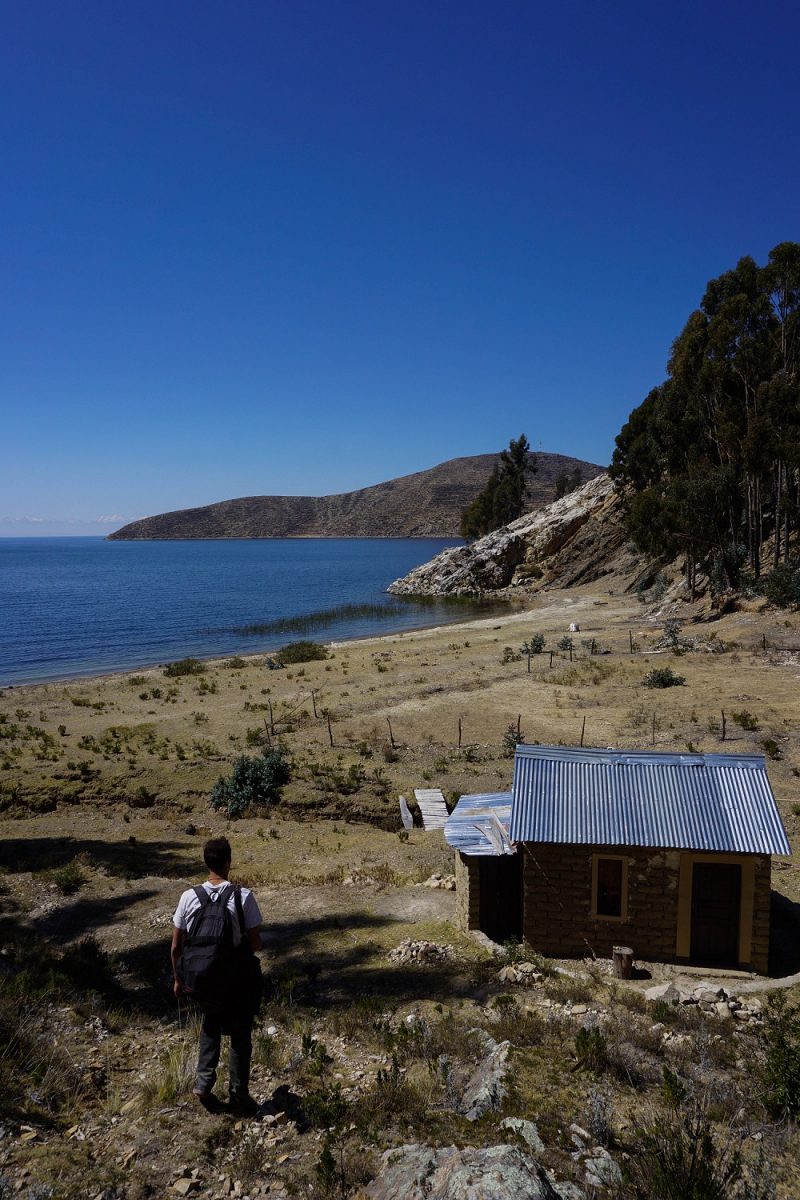
Heading down to the beach
S: As we explored the eastern side of the island by foot, we found an idyllic small hidden beach. We walked down a rocky hill, past a small abandoned cabin, and reached a 300 foot wide beach with no one and nothing else to be seen apart from the dry landscape and clear water. We sat down in a little dune. We took the acid and sat in silence, with our faces turned to the bright warm sun.
It was just after midday when we took the acid, 3/4 tab each. I estimate that each of our doses were about 50-100 micrograms each (current drug laws make it very hard to know what you actually have – let’s fight for legalisation! OK, more on that in another post). I figured it was a good idea to take less than a full tab after others’ feedback on this batch; one example – a few weeks earlier I’d given a tab to a curious Korean girl I’d met in Sucre advising her that half the tab might be best for her first time – she later contacted me telling me she had tried half and that the trip was strong, much stronger than she’d expected and had lasted more than 14 hours(!). So anyway…
The Trip
After about an hour we both began to feel lethargic and sluggish like just we’d eaten a fat and heavy meal (we had in fact eaten a sandwich and were probably sensitive to the digestion). We lay back and relaxed and it passed after about twenty minutes as the trip began. As the psychological effects came on, Sophie told me that she had the sensation that her body wasn’t ‘hers’. Looking at one of her feet she dug it into the sand a few times, as if it were numb with pins and needles, and testing her sense of touch. She was smiling and seemed to be enjoying the novelty.
‘It’s so weird – it’s not mine!’
Looking bewildered, she picked up a small stone from beside her and threw it at her foot.
‘Yes, but it is useful, you’ll need it later’ I smiled.
- The ‘this body is not my body’ sensation is not an uncommon sensation for people to experience on psychedelics. For this reason, looking at yourself in a mirror is weirdly fascinating.
We lay back and relaxed as you would do on any day at the beach. A little scraggly dog appeared and decided to chill with us, I happily appointed him mascot for the trip and Sophie named him Sam.
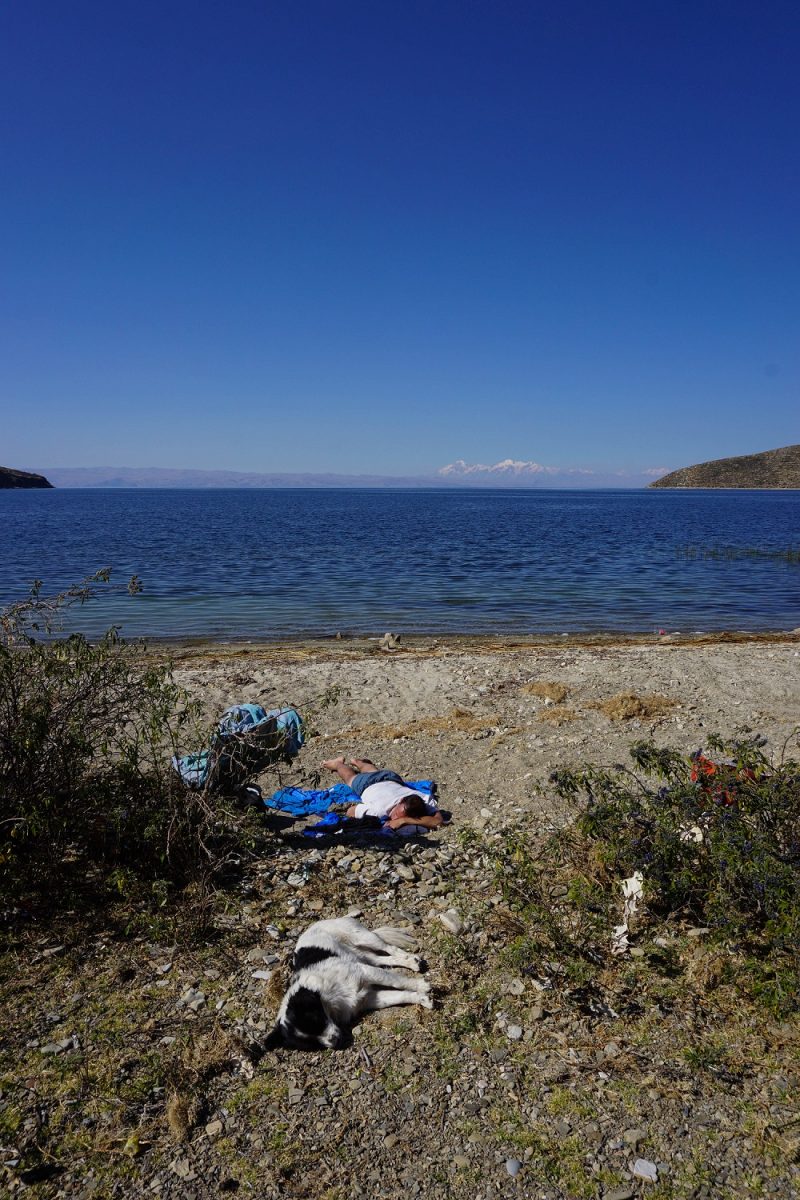
Me and Sam: a dog’s life
S: After a little while, I started to feel very relaxed. The sun on my skin felt very nice and comforting, and there was nothing else I wanted in that moment. I was sensing a lot, but emotionally in a very stable and positive way. The more I allowed myself to just take in the moment, the more I felt happy, content and at peace. I’ve never experienced myself being so present; my thoughts did not drift off to the past or future, I was able to fully feel how it was to be there.
- Happy, content and at peace – Yes, this is why we trip!
S: I decided to go for a swim. Even though the water was very cold, it felt very nice around my body. I couldn’t get enough of the water and stood there for a while, just feeling the water with my fingertips, legs and belly. I stared out towards the sun and felt good. My feeling was that it was the perfect place to be at that exact moment.
- Presence – the feeling that there is nowhere else you’d rather be, and nothing that you would change; that everything is as it should be – also not an uncommon effect of psychedelics. Nice.
Sidenote: the water was actually freezing, like really cold. I’d dipped in myself a short while before and at that point was comfortably dried off and happily chilling on my towel again. Crazy girl.
S: There was not much more than the beach, the water, the sun, John and the little dog that came and joined us. The world felt like a little place in those moments.
We passed the day there, simply enjoying the view and listening to music as we lay in isolation from the world and any nagging thoughts of it. That afternoon our bodies and minds were there on that beach.

I spent long periods of time just gazing at this beauty
After the Peak – Coming Down & Hiking Up
There was no intense peak on this trip and after a few hours we could both feel the effects diminishing. As the effects started to wear off we decided to leave the beach and start heading back to give ourselves time to find our way back to our room before dark. We left the beach and climbed back up to the hiking trail, marvelling at the outstanding beauty from our new vantage point.
Sophie told me that her body felt different again, that physically she felt light and rejuvenated. I didn’t find it hard to believe as she was joyfully bouncing around with a spring in her step and a blissful smile on her face. Looking at our new surroundings we saw beauty from all sides and were charmed by some wild goats trotting freely on the mountain beside us.
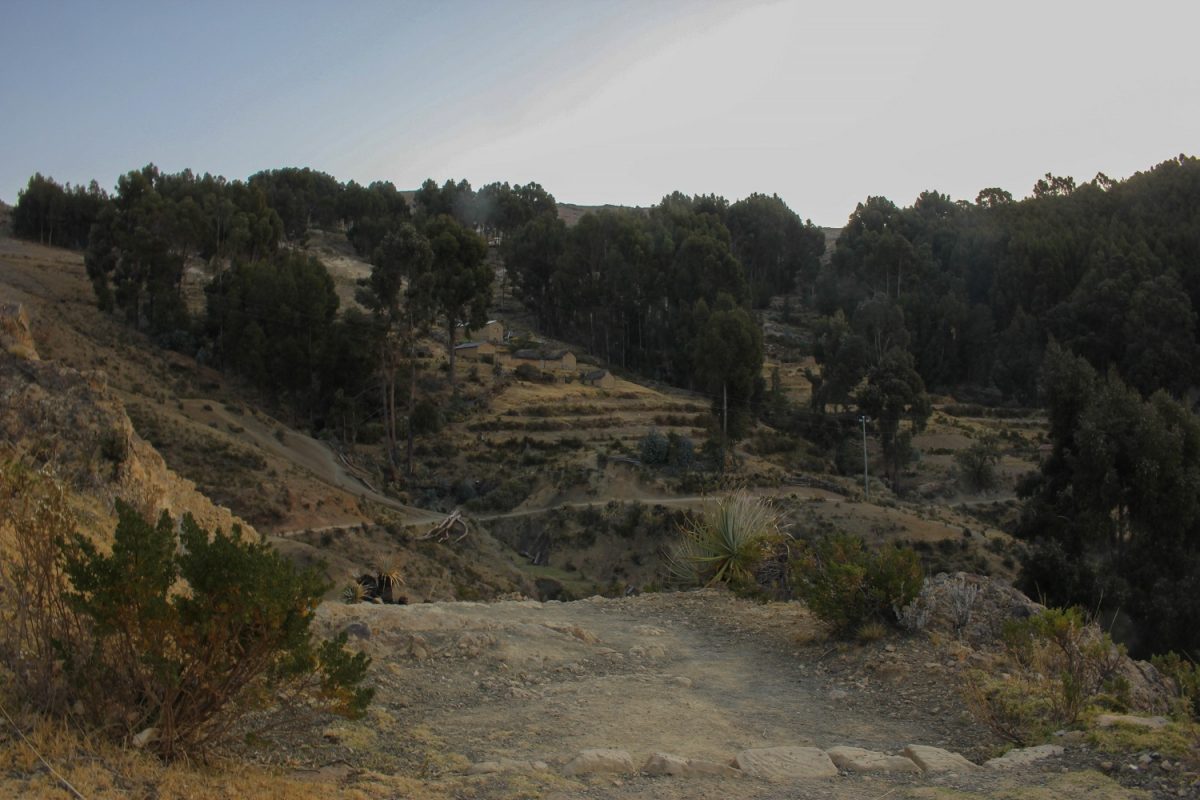
The trail, sorry – didn’t get a pic of the goats
Attempting to capture the beauty of the landscape, Sophie took out her camera and snapped a few pics, but each time, upon glancing at the photo upon her screen, ‘less beautiful!’. Reality just couldn’t be matched.
As we continued walking along the trail, we noticed that we could see our spot down on the beach, where we’d spent the previous five hours or so. We’d been totally oblivious of how exposed the beach was; from the shore we’d only been looking out, and not behind us and up the hill behind. Whilst we were down there we felt totally secluded and had been in our own little universe, but now we could see that the spot was clearly visible to anyone walking the trail. Being one of the top tourist spots in Bolivia, there was a decent number of people hiking around that day. We imagined tourists hiking along that day and seeing us down there – myself sprawled on the towel and Sophie standing topless and motionless in the still cold waters of the Lake – and doubled over in hysterics. People don’t typically visit the Isla Del Sol to have a beach day, it’s more of a hiking/Incan ruin tourist pull, so imagining what people might’ve been thinking as they saw us on their way round was hilarious and we continued cracking up in bursts of laughter for a good ten minutes. Even thinking about it now brings a smile to my face.
- Uncontrollable laughter is also not an uncommon occurrence when tripping, and quite frankly, an absolute joy. There is something so liberating and joyful about free and unrestrained laughter; it’s one of my favourite aspects of tripping.
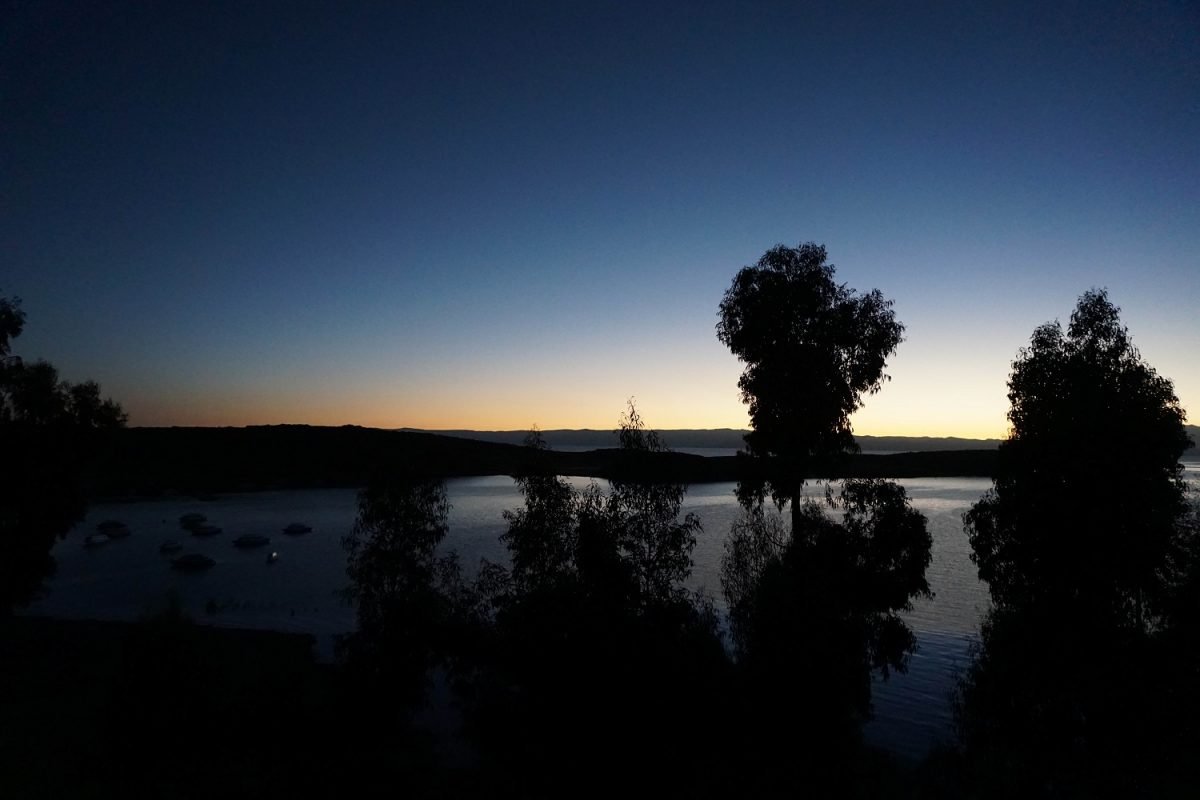
Night falls on the island
As the laughter died down we made our way back and went for dinner at the only restaurant in ‘town’, a small family place with 4 tables and a 10 year old kid as the waiter. We talked about our day and the trip together – a classic ‘debrief’ over dinner. After arriving back home, we perched on the mountain beside our room and gazed up at the stars, a tree dancing with the wind in our view. Tenderly, almost wistfully, speaking of the native’s beliefs, Sophie let out:
‘You know, sometimes I understand why they believe in Pachamama’
Me too Sophie, me too.
Final thoughts from Sophie
Are you glad you tried LSD? Was it a positive experience?
S: Yes and yes, it was even better than I expected, I’ve never felt so truly in the moment, not being distracted by thoughts, the surroundings, past or future.
Was it how you had expected it to be? And how was it different from what you expected?
S: Honestly I expected it to be less fulfilling, I mean, I expected to feel a happy and relaxed feeling, but not so much the capability to let go of all thoughts about past and future, and therefore the feeling of being totally relaxed. I also didn’t expect to feel so alert yet relaxed and open at the same time.
Delving Deeper: LSD as a Tool
I would definitely describe this first time trip on LSD being a success. However, we didn’t delve into any particularly deep areas of thought, or have the induced psychoanalysis that I associate with acid. As on this trip, it can be quite easy to simply pass through an experience in wonder and enjoyment of your surroundings without probing deeper territory. Psychedelics may indeed lead to deeper questions and revelations (as with my own first experiences), but as in this case, it’s not guaranteed. This may have been due to the strength of the dose, it may not have been enough to push us into that realm, or it could have been the captivating view that pulled us into the outer sensual world rather than our own internal worlds – honestly I’m not sure – but if you are hoping to learn some kind of bigger lesson from your experience it might be worth having a list of things/obstacles in your life with you to think about, and setting aside some time during the trip to do this. Doing this whilst tripping can help to see things from a new angle and get a fresh perspective on how you might approach and overcome problems in your life.
Notes From The ‘Guide’:
To be entirely honest, no difficult situations reared their heads and there was nothing I needed to do. Everytime I asked, Sophie told me how relaxed and good she felt. I honestly believe that the potential dangers of psychedelics are overstated. If you are sensible with set and setting and don’t have a history of mental illness, my personal view is that you will not only be fine, but stand to have an incredible experience with much to gain – not only during your adventure to new territories of consciousness, but also beyond the experience and in your life after the trip has ended. Finally I would recommend that you don’t resist or fight against what you are experiencing; accept it and go with it – that’s my first advice to anyone intending to take a psychedelic of any kind.
Due to the smooth nature of the trip, I don’t think there is much useful advice I can pass on as a guide other than the obvious: be positive, supportive and calm.
For first time trippers or trip sitters – there are some fantastic books and online resources, here are a few to get you started:
-
- 6 Steps For Helping A Friend Through A Bad Psychedelic Trip – Zendo Project
- Beginner’s Guide to Enjoying a Trip – Reddit
- Session Games People Play: A Manual For The Use Of LSD (Good for groups) – Psychedelic Frontier
- Tripsafe
- The Psychedelic Explorer’s Guide: Safe, Therapetic, and Sacred Journeys – By James Fadiman
– – – – – – – – – – – – – – – – – – – – – – – – – – – – – – – – – – – – – – – – – – – – –
That’s it! Potential trippers, I hope you’ve found this post useful. See you around 🙂



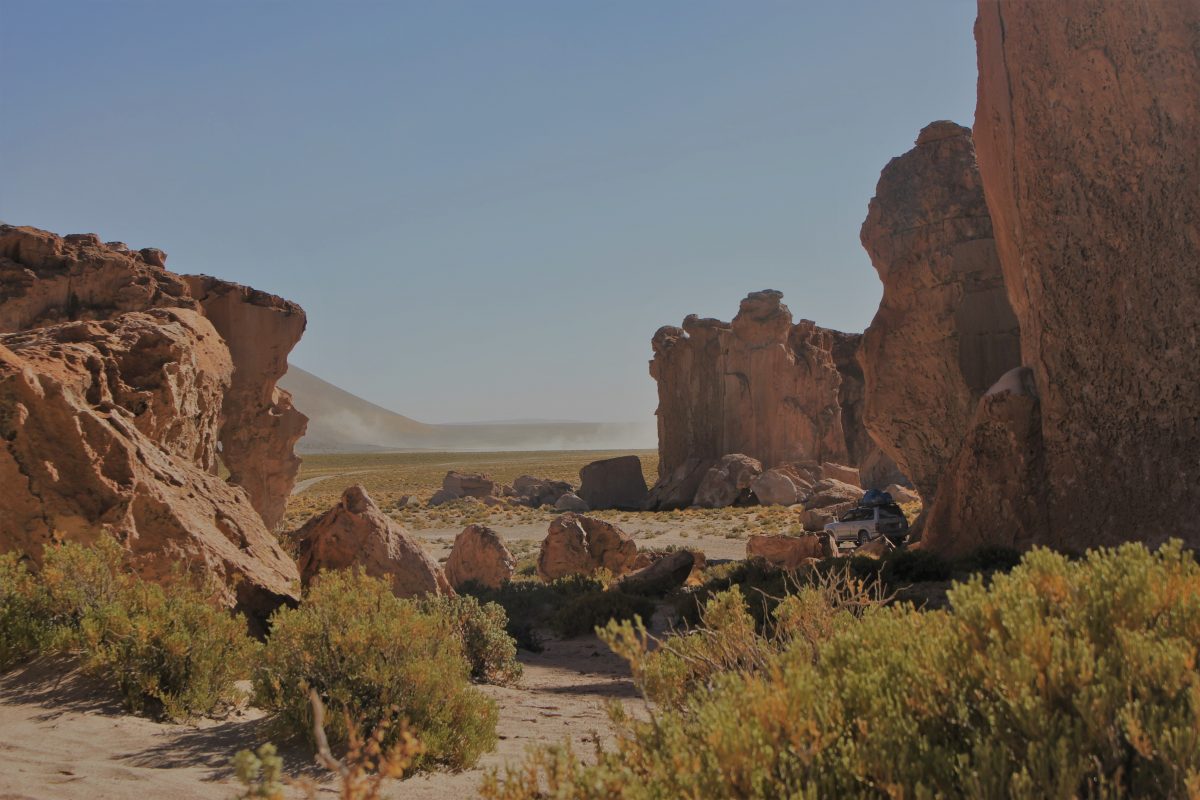

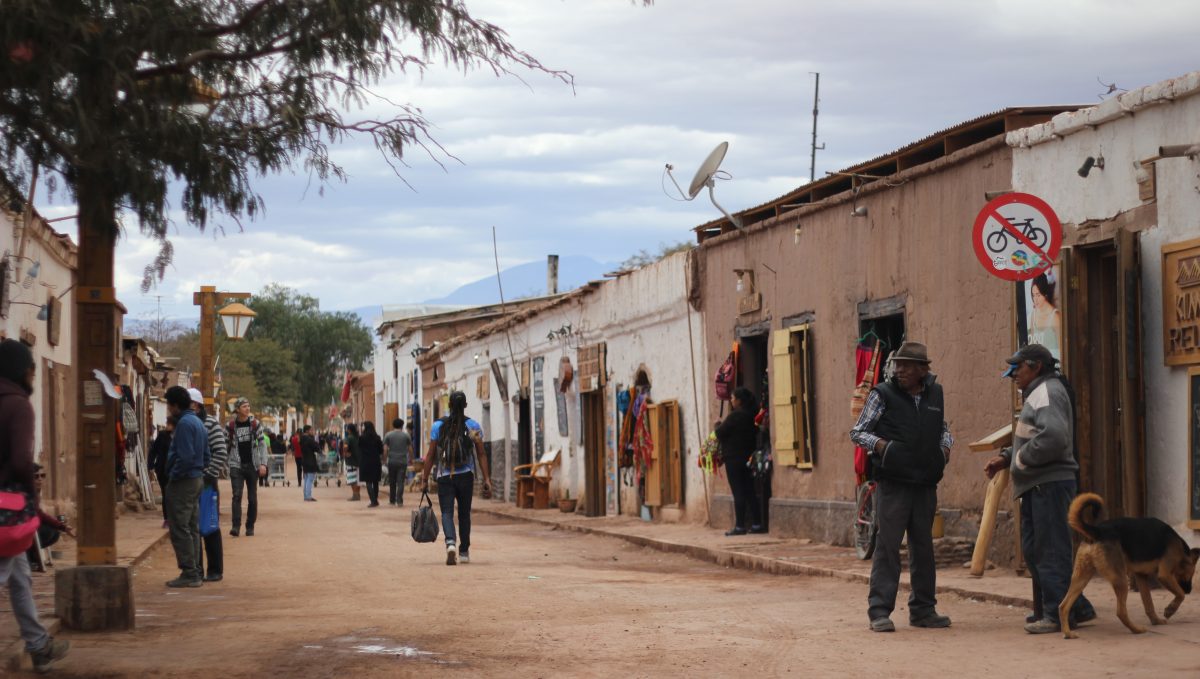

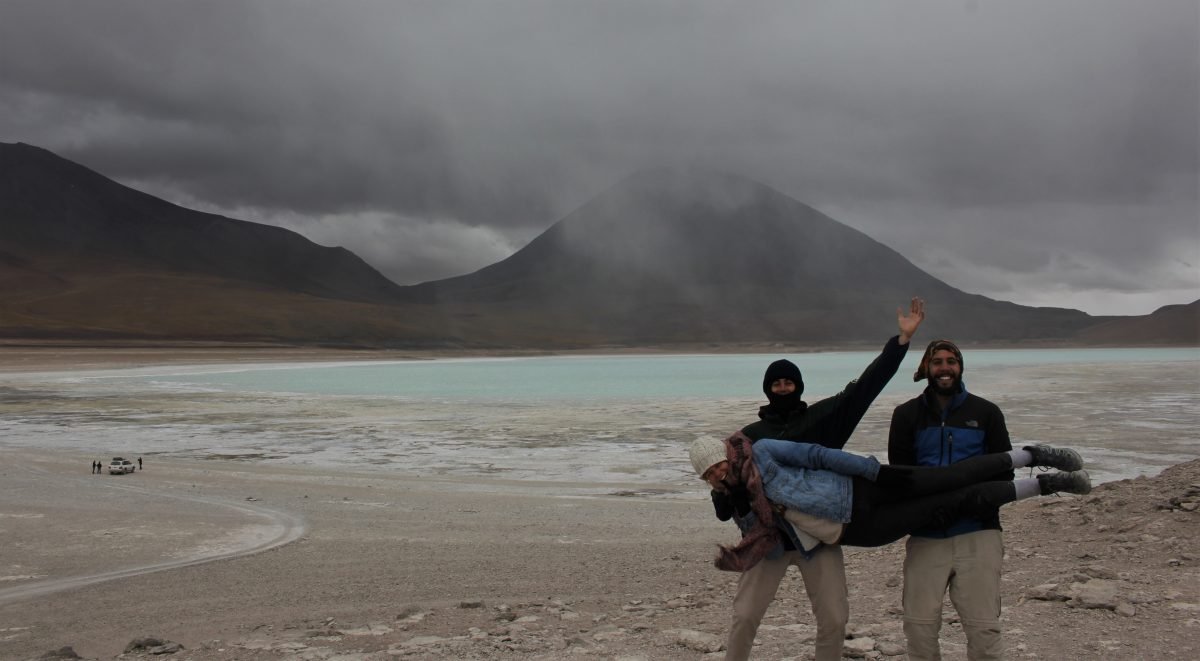 After lunch we had some long stretches in the car to make it to our place for the night. During these stretches I felt more or less comfortable in the experience of a light trip and never once felt nervous. However, I also never felt totally relaxed. This was a strange reversal for me as normally on a long journey I feel settled and find it easy to relax. I suspect it was at least partly due to the jagged rhythm of our almost constant movement; driving from one especially picturesque natural phenomenon to the next, jumping out for a bit before jumping back in and then heading onto the next one.
After lunch we had some long stretches in the car to make it to our place for the night. During these stretches I felt more or less comfortable in the experience of a light trip and never once felt nervous. However, I also never felt totally relaxed. This was a strange reversal for me as normally on a long journey I feel settled and find it easy to relax. I suspect it was at least partly due to the jagged rhythm of our almost constant movement; driving from one especially picturesque natural phenomenon to the next, jumping out for a bit before jumping back in and then heading onto the next one.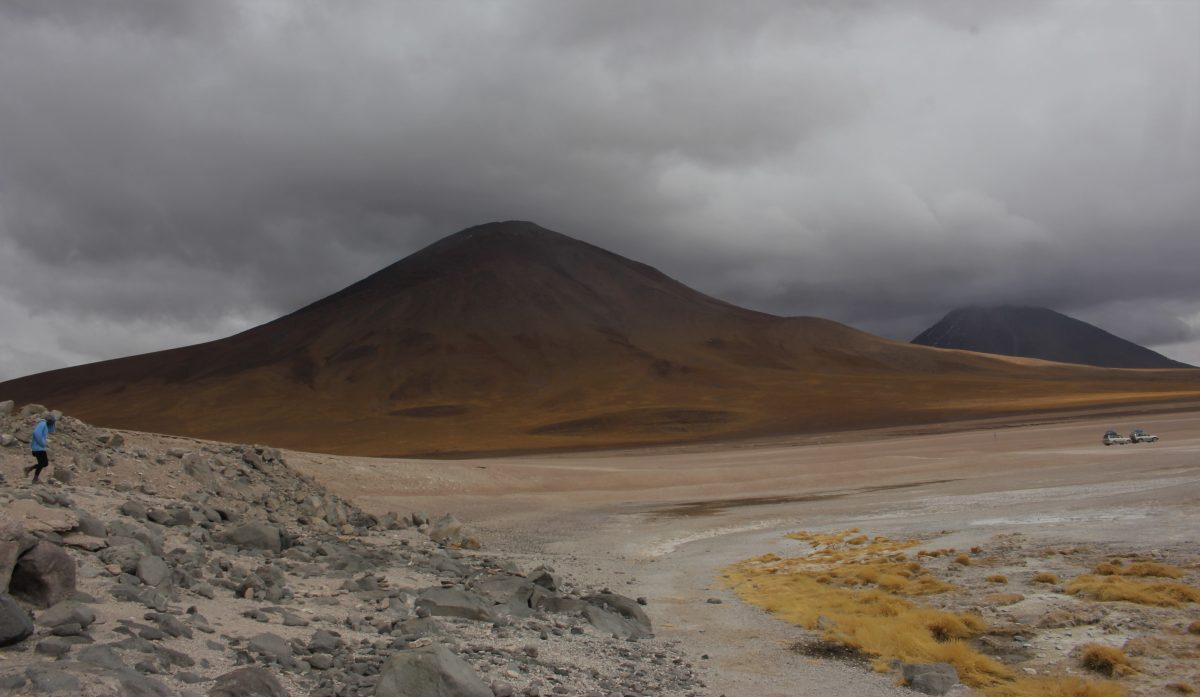 Outside the car the wind was pounding so hard that it was seriously chilly. Being smashed by the wind however, was exhilarating, at least for me; at some stops the others didn’t fancy it and stayed in the car. Myself and one of the other guys got out at every stop, always sadistically eager to get out into the pounding gusts – we agreed that it made us feel alive!
Outside the car the wind was pounding so hard that it was seriously chilly. Being smashed by the wind however, was exhilarating, at least for me; at some stops the others didn’t fancy it and stayed in the car. Myself and one of the other guys got out at every stop, always sadistically eager to get out into the pounding gusts – we agreed that it made us feel alive!